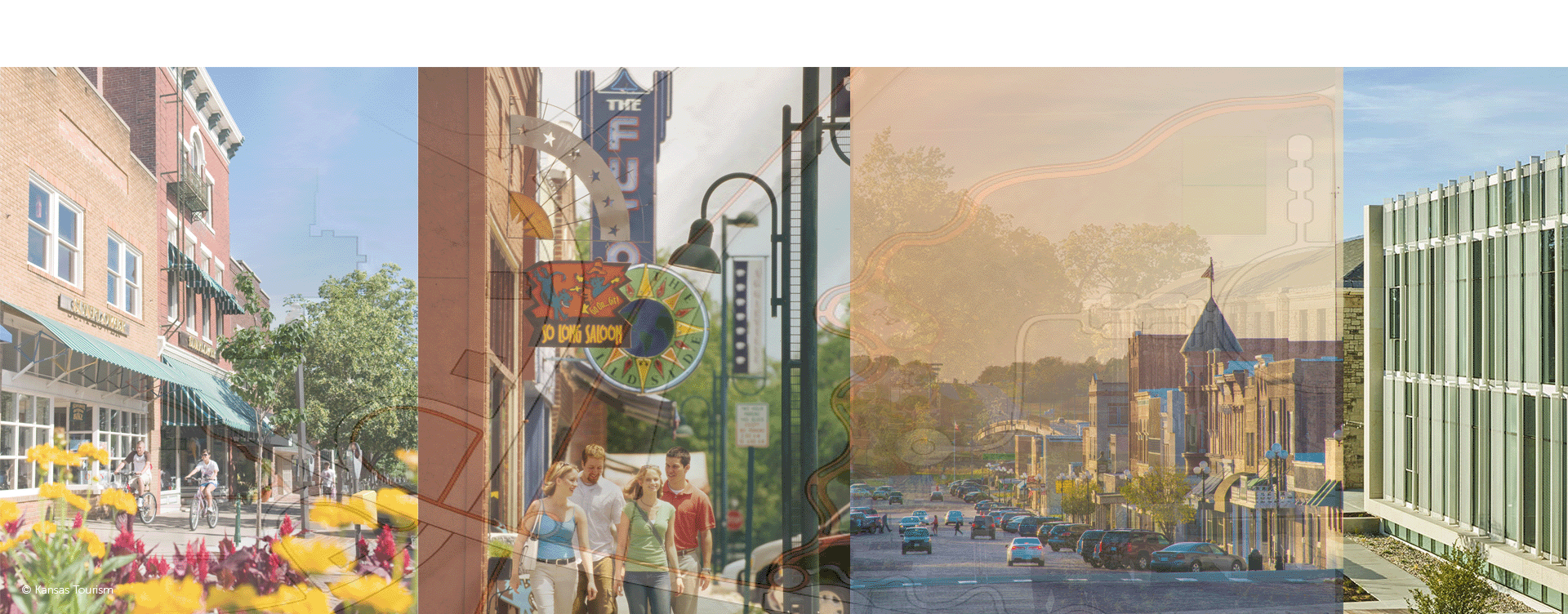
Real Estate and Community Development
Community-minded Real Estate Development
The LARCP department within Kansas State University’s APDesign is now offering a Bachelor of Science in Real Estate and Community Development (RECD). The RECD bachelor's degree combines finance, planning, and community development knowledge to position students in communities doing exciting, transformative development work focused on people and place!
Interested in finding out more about the RECD program or transferring into the major? Please contact Dr. Huston Gibson, Professor & Department Head at hgibson@ksu.edu or 785-532-5961.
There is a long-standing Master of Regional and Community Planning (MRCP) program established within the department. While the MRCP program focuses heavily on a curriculum for aspiring professional planners, the new RECD program has a broader focus on community development professional opportunities with greater emphasis on real estate within the built environment.
Uniquely, the RECD curriculum bridges community development and business with the inclusion of real estate learning, capitalizing on K-State’s strengths.
Admission to the RECD program is consistent with those of the university (https://www.k-state.edu/admissions/ undergrad/manhattan/apply/incoming-freshmen/requirements.html).
Application for admission is test-optional. Freshmen applicants, aged 21 & younger, who graduate from an accredited high school, will be assured admission to K-State if they meet the following requirements:
- A cumulative high school GPA (weighted or unweighted) of 3.25 or higher OR
- ACT composite score of 21, or an SAT ERW+M score of 1060 or higher
- AND, if applicable, achieve a 2.0 GPA on all college credit taken in high school.
Those who do not meet the assured requirements are still encouraged to apply and their application. Your application will be reviewed individually.
Through a total of 120 credit hours, students will consider built capital, learn how to map assets, and work to help re-imagine main streets and downtown districts.
As a joint endeavor between APDesign and the College of Business, this program reflects and builds upon the existing resources and faculty expertise between both colleges, key alumni, and professionals, providing the opportunity to form connections. Like other degree paths within APDesign, the RECD curriculum gives students the opportunity to participate in an education abroad experience and/or complete a professional internship, with opportunities being coordinated in part with the Kansas Department of Commerce’s Community Development Division.
This partnership speaks to the long-standing high-performance of the LARCP programs as the current director is an alumna of APDesign with a Master of Science in community development.
This program is grounded in APDesign mission and foundational strengths and supports existing degrees and pathways. For almost two decades, LARCP has offered an award-winning Master of Science in community development, and more recently a graduate certificate in community development; both programs offered online as part of the Great Plains Interactive Distance Education Alliance (GPIDEA). Until now, the department and college has not offered any undergraduate degrees. This program will allow K-State students to expand their interests in community development and real estate with a potential path for graduate study.
The specific combination of community development and real estate sets graduates from the RECD program apart from general or stand-alone community development or real estate development programs sending community-focused and financially minded graduates into the job market prepared to help build stronger, healthier communities.
Bureau of Labor Statistics indicates the job growth rate for community and social services specialists and managers is much faster than any other job average growth rate nationally. Community development professionals make up a critical niche within this category providing imperative place-based community expertise of the built environment. In addition, real estate development occupations are projected to grow 5% between 2019 and 2029, also faster than the average for all occupations nationally.
These disciplines prepare students focusing on people and placefor future workforce areas such as:
- Downtown development programs
- Business improvement districts
- Real estate investment
- Environmental groups
- In public, private, and non-governmental organizational sectors, and ultimately focus on people and place